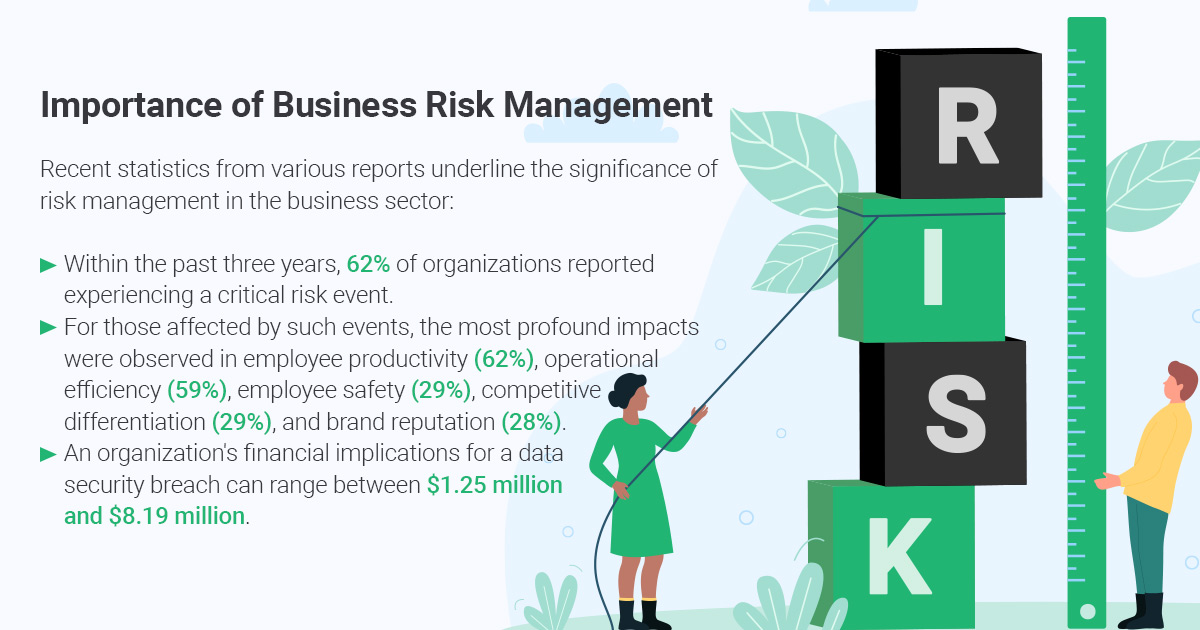Enhancing Operational Efficiency Through the Importance of Risk Management
Enhancing Operational Efficiency Through the Importance of Risk Management
Blog Article
The Crucial Importance of Risk Management in Getting Business Goals
This is where Risk Management actions in, providing an organized technique to recognizing, evaluating, and mitigating possible barricades to progress. As we discover the vital function of Risk Management in achieving business goals, one can not help yet question: how does this equate right into real-world success?
Comprehending the Idea of Risk Management in Organization

The Important Role of Risk Management in Strategic Planning
Integrating Risk Management right into strategic preparation acts as a safeguard for organizations, anchoring their lasting plans with a strong foundation of preparedness and strength. Risk Management offers a framework for preparing for unpredictabilities and designing appropriate responses, ensuring the company's survival and success even in the face of hardship. By integrating Risk Management right into tactical planning, organizations can change these unpredictabilities right into chances for growth and development.

Techniques for Identifying, Assessing, and Focusing On Dangers
The procedure starts with Risk identification, using tools such as SWOT evaluation, which helps in pinpointing potential hazards and possibilities. Next off, Risk evaluation is conducted to identify the potential impact and likelihood of each Risk. Dangers are prioritized based on their prospective impact and possibility, permitting companies to concentrate their sources on critical risks.
Protecting Organizational Workflow With Reliable Risk Management
In the company anchor landscape filled with unpredictabilities, effective Risk Management plays a crucial role in guarding business procedures. By identifying and analyzing potential risks, Risk Management makes it possible for organizations to establish durable contingency strategies. Companies should spend in detailed Risk Management strategies to guard their procedures.

Transforming Potential Dangers to Opportunities: The Power of Risk Management
While potential hazards might initially appear as obstacles to business success, effective Risk Management can change them into chances. A proactive technique to run the risk of Management entails identifying, assessing, and focusing on threats to create methods that transform them right into prospective benefits. This process requires the advancement of a risk-aware culture within the company, motivating people to view dangers as possible stimulants for modification and development, rather than mere threats. importance of risk management. Via this lens, possible risks come to be chances to innovate, boost processes, and strengthen resilience. Thus, by leveraging the power of Risk Management, organizations can not only guard their operations but also stimulate development and achieve their goals in an unpredictable company atmosphere.
Case Studies: Success Stories of Risk Management Driving Company Objectives
Effective implementation Get the facts of Risk Management methods has generated outstanding results in different organizations, underscoring the advantages of this approach. Multinational business like Microsoft and Google, for instance, have leveraged Risk Management to minimize threats and make use of possibilities, driving their service goals ahead. These instances illustrate just how effective Risk Management can not just guide services clear of potential pitfalls however also lead them towards their critical purposes.
Conclusion
In verdict, Risk Management is essentially essential in attaining business goals. By incorporating Risk Management into tactical planning, businesses can better browse unpredictabilities, secure operations, and capitalise on possibilities, thereby aligning with lasting objectives.
At its core, Risk Management is the procedure of determining, evaluating, and attending to possible dangers that might negatively impact a company's operations or browse around this site goals. Next off, Risk analysis is performed to determine the potential influence and possibility of each Risk. Risks are focused on based on their potential impact and likelihood, enabling companies to focus their sources on critical dangers. By recognizing and examining potential threats, Risk Management enables organizations to develop robust contingency strategies. A proactive strategy to risk Management entails determining, evaluating, and focusing on threats to develop approaches that transform them right into prospective advantages.
Report this page